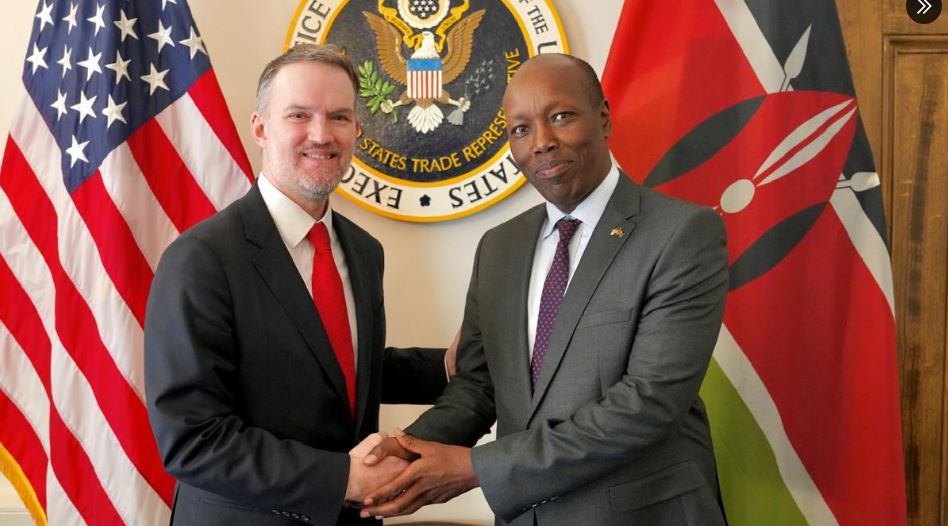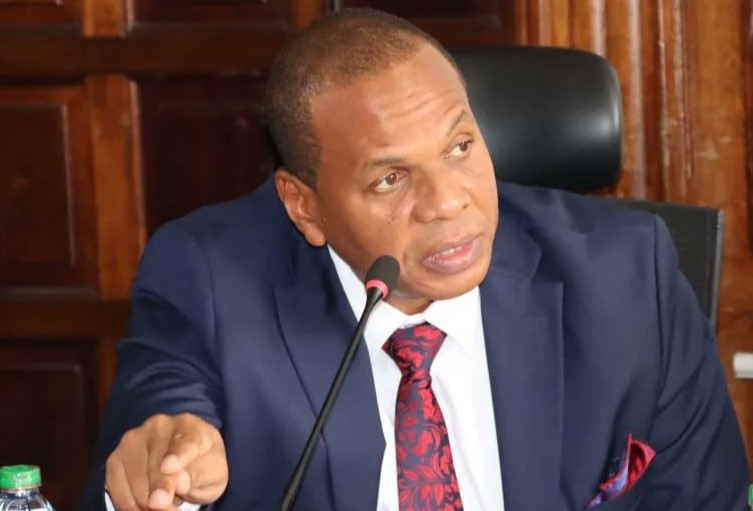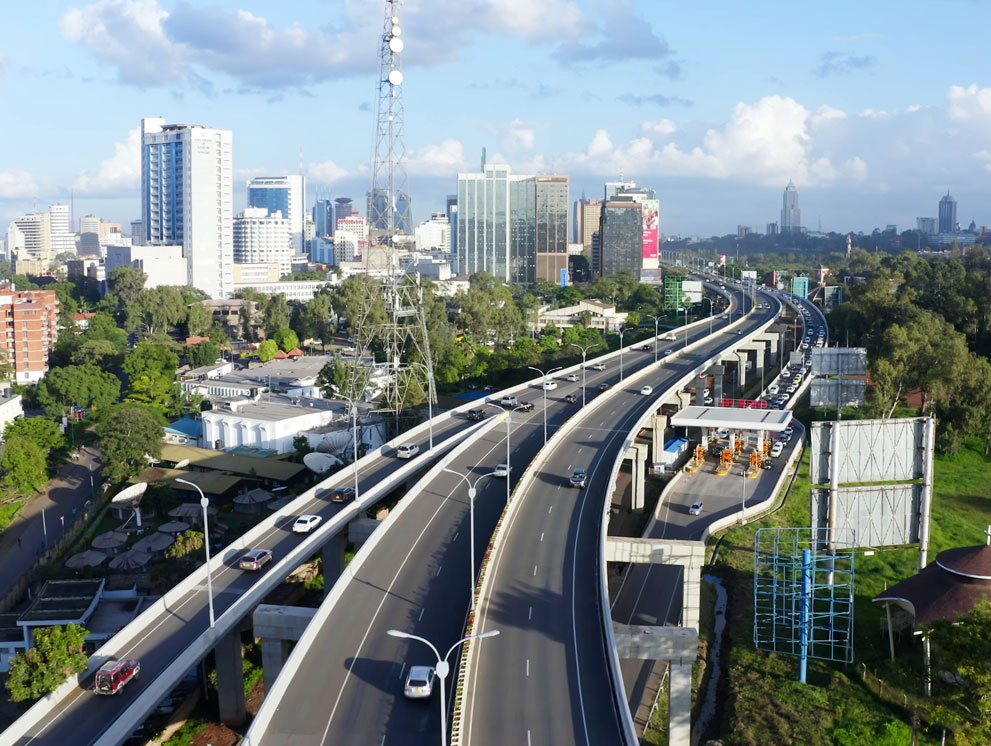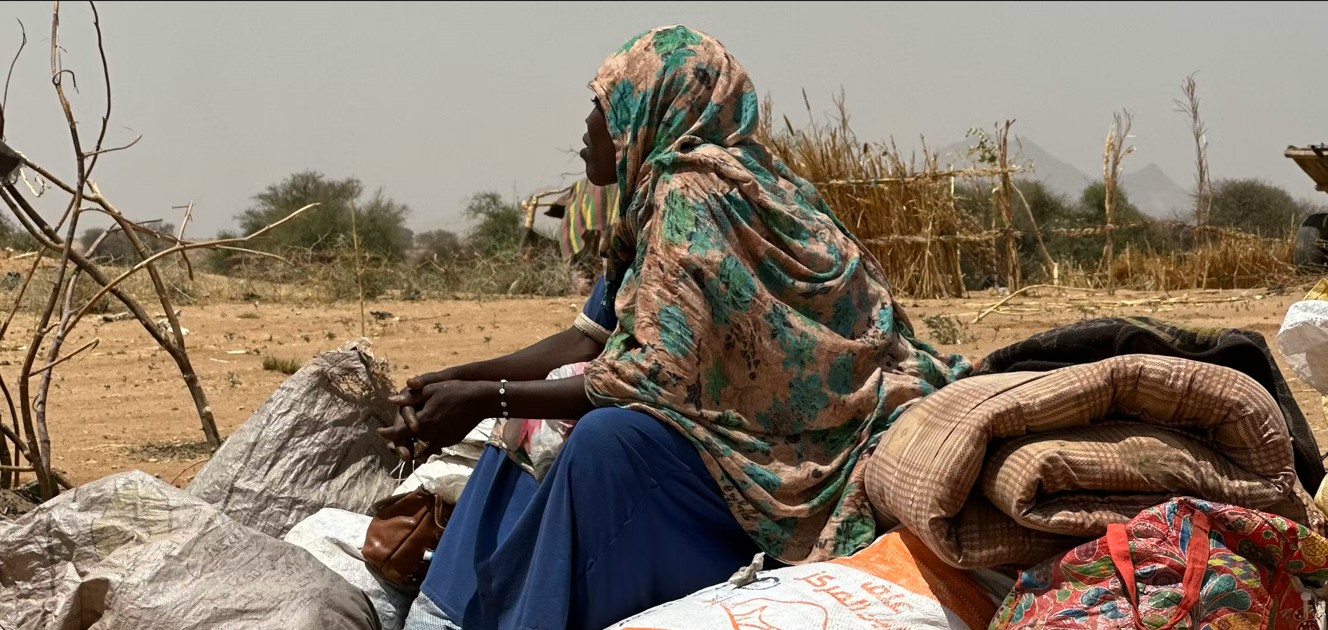Lee: Trump's new tariff policy brings challenges and opportunities for Kenya

Since May 2000, Kenya has been exempted from tariffs when exporting to the world's largest economy under the African Growth and Opportunity Act which expires this September.
The Ministry of Trade has responded with mixed reactions to the recent imposition of a 10 per cent export tariff by President Donald Trump on Kenyan exports to the United States.
In his communication on Thursday, Investments, Trade and Industry Cabinet Secretary Lee Kinyanjui said the new tariff policy presents both challenges and opportunities for Kenya.
More To Read
- CS Kinyanjui: Kenya cannot develop while rejecting all funding options
- BBC resignations over Trump scandal show the pressures on public broadcasters – and why they must resist them
- Kenya among nine nations leading regional push to strengthen health systems against climate change
- Kenya exports Sh50.87 billion worth of goods to US ahead of AGOA expiry
- Africa imports over 70 per cent of its medicines — Local production of ingredients could change that
- New study reveals why young mothers in Kenya are at higher risk of preterm births
He says the move, for instance, poses a great opportunity for the country’s textile sector, whose potential is yet to be explored fully.
“While Kenyan exports to the US will now face a 10 per cent tariff, this is significantly lower than the rates imposed on key textile-exporting competitors like Vietnam (46 per cent), Sri Lanka (44 per cent), Bangladesh (37 per cent), China (34 per cent), Pakistan (29 per cent) and India (26 per cent),” Kinyanjui said.
“With other textile exporting countries facing much higher tariffs, Kenya could position itself as an alternative sourcing hub for US buyers.”
He added that the move presents an opportunity for investment in local textile production and value addition, which could attract businesses seeking to avoid higher costs from traditional suppliers.
The ministry says there is a great opportunity to diversify the country’s exports beyond the current portfolio.
Kenya can explore opportunities to process and manufacture goods that are now more expensive from countries with higher tariffs. Industries such as apparel, leather and agro-processing could benefit from increased demand, Kinyanjui said.
On the downside, CS Kinyanjui said the major challenge posed by the reciprocal tariff is the increased costs for Kenyan exports.
“While the 10 per cent tariff is lower than the competitors' tariffs, it still raises costs for Kenyan businesses exporting to the US,” he said.
“Supply chain adjustments will be necessary, such as expanding production to meet new demand. This will require investment in infrastructure, technology and skills development.”
The Kenya National Chamber of Commerce and Industry (KNCCI) aligns with the CS’s concerns, stating that the tariff change poses a significant challenge to Kenya's exports to one of its largest and most dependable trading partners.
“The tariff policy will undoubtedly affect Kenya's trade imbalance, currently at Sh1.7 trillion (equivalent to 12 per cent of our GDP),” the chamber said.
“While Kenya might not retaliate by imposing higher tariffs on imports from the US, the Chamber will urgently convene a meeting with stakeholders to address the emerging challenges and find modalities to cushion exporters, investors, both local and international.”
It added that it is in consultation with the Ministry of Trade and the Ministry of Foreign and Diaspora Affairs to look into opportunities to compensate for the 10 percent increase in tariffs and identify alternative products and services for export to the US and other countries.
Since May 2000, Kenya has been exempted from tariffs when exporting to the world's largest economy under the African Growth and Opportunity Act (AGOA), which expires this September.
Top Stories Today











































